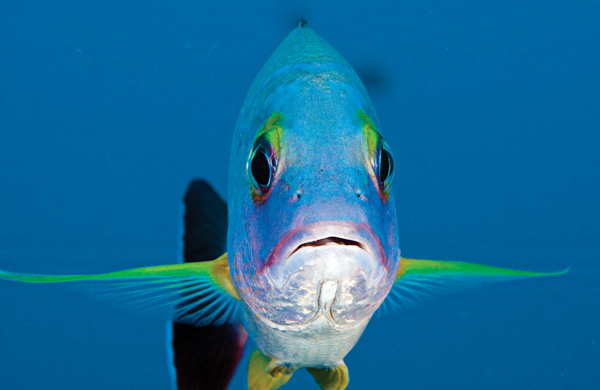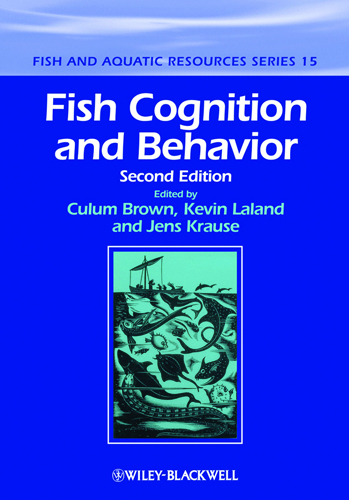Are fish more than a menu item?
A new study suggests fish are behaviourally complex and possess a mental capacity that can match or exceed other vertebrates

A paper just published in the scientific journal Animal Cognition states that “fish perception and cognitive abilities often match or exceed other vertebrates.” Dr. Culum Brown, a professor in the Department of Biological Sciences at Australia’s Macquarie University in Sydney and author of the paper, also says, “Fish have a high degree of behavioural plasticity and compare favourably to humans and other terrestrial vertebrates across a range of intelligence tests.”
The information isn’t new. Brown’s assertions on ‘fish intelligence, sentience and ethics’ are part of a review of the current state of knowledge of fish behavior and cognition gleaned from scores of scientific studies and findings published over decades. It’s the first paper to distill for journal publication this voluminous research, which scrutinizes the full range of ethological aptitudes, detailing dozens of studies and extrapolating from those results to determine what we do and do not know about fish. The areas considered include: evolution and biological complexity; sensory perception; cerebral lateralization; pain; and cognition, including learning and memory, social learning, social intelligence, tool use, and numerical competency.
His review of this scientific literature, complete with examples, concludes, “Fish compare well to the rest of the vertebrates in most tasks,” differing little in cognitive and behavioral complexity from primates. For example, they:
- Can “perform multiple complex tasks simultaneously” due to cerebral lateralization, a trait that until recently was thought to be uniquely human
- Can recall the location of objects using feature cues, a capacity developed by humans at approximately age six
- “Have excellent long-term memories,” (including time-place, spatial, social, and aversive experiences)
- “Live in complex social communities where they keep track of individuals and can learn from one another, a process that leads to the development of stable cultural traditions … similar to some of those seen in birds and primates”
- “Cooperate with one another and show signs of Machiavellian intelligence such as cooperation and reconciliation”
- Can use tools, another “in a long list of skills that was supposed to be unique to humans”
- “Use the same methods for keeping track of quantities as we do” (numerosity is another of the capacities that scientists once thought unique to human beings)
His review also covers fish pain perception and the evidence, he says, strongly suggests that fish “experience pain in a manner similar to the rest of the vertebrates.” He says it would be impossible for fish to survive as the cognitively and behaviourally complex animals they are without a capacity to feel pain. He notes that pain perception is essential to animal survival, and that it has deep evolutionary origins across all vertebrate species.

Close Relationship
There are 32,000 known species of fish, more than all other vertebrates combined. Human interaction with fish occurs on many levels and on a much larger scale than with mammals or birds. We consume more fish than any other animal, they are the most numerous of human pets and in scientific research fish are used in quantity second only to mice. Despite all of this, fish have not roused much public concern for their own welfare. Brown speculates the central reason for this is the large gap between our perception of fish intelligence and the scientific reality. “This perception often drives our decision whether or not to include them in our moral circle,” and, he notes, it also affects public policy. He said researchers would take the position that if an animal is sentient, then it can most likely suffer and, therefore, should be offered some form of formal protection. Attitudes are also influenced because humans rarely come into contact with fish in their natural environment (divers excepted) and when we do think of fish, it’s usually in the context of food.
Brown is co-editor of the book Fish Cognition and Behaviour, assistant editor of The Journal of Fish Biology, and editor of the journal Animal Behaviour. His just published review focuses especially on bony fish. It suggests that fish show a “rich array of sophisticated behaviors,” and are, in fact, far more intelligent than many previously believed. For example, fish have good memories, live in complex social communities where they keep track of individuals and can learn from one another. This helps to develop stable cultural traditions. Fish even recognize themselves and others. They also cooperate with one another and show signs of Machiavellian intelligence, such as cooperation and reconciliation. They build complex structures, are capable of using tools, and use the same methods for keeping track of quantities as humans do. For the most part the primary senses of fish are just as good, and in many cases, better, than that of humans. Their behaviour is very much the same as that of primates, except that fish do not have the ability to imitate.
 While the brains of fish differ from other vertebrates, fish have many analogous structures that perform similar functions. Brown concludes that if any animals are sentient, fish must be considered to be so, too. “Although scientists cannot provide a definitive answer on the level of consciousness for any non-human vertebrate, the extensive evidence of fish behavioural and cognitive sophistication and pain perception suggests that best practice would be to lend fish the same level of protection as any other vertebrate,” Brown says, acknowledging that such a move has implications for the fishing industry, among others.
While the brains of fish differ from other vertebrates, fish have many analogous structures that perform similar functions. Brown concludes that if any animals are sentient, fish must be considered to be so, too. “Although scientists cannot provide a definitive answer on the level of consciousness for any non-human vertebrate, the extensive evidence of fish behavioural and cognitive sophistication and pain perception suggests that best practice would be to lend fish the same level of protection as any other vertebrate,” Brown says, acknowledging that such a move has implications for the fishing industry, among others.







